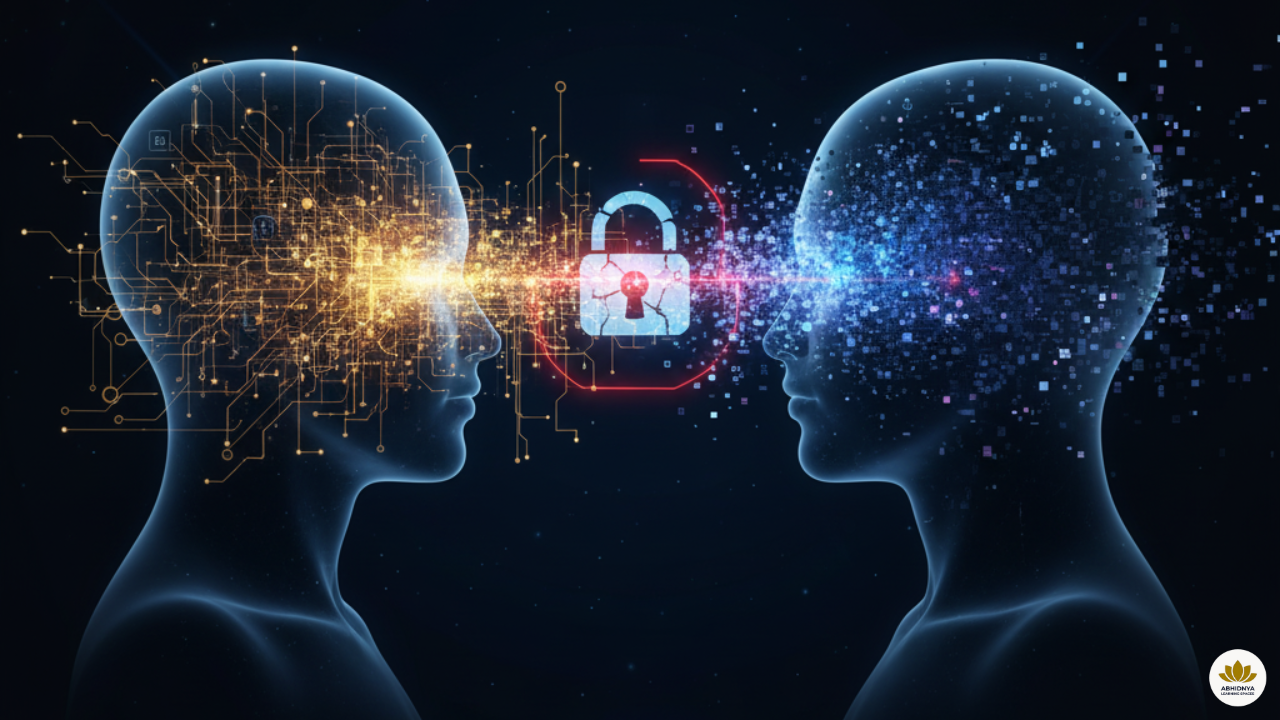Digital Amnesia and the Loss of IP: Why Your Conversations with AI Must Be Protected

Digital Amnesia and the Loss of IP: Why Your Conversations with AI Must Be Protected
Imagine spending hours in a co-working session with your smartest collaborator, painstakingly building a new theory, outlining a business plan, or synthesizing a complex research question. You get up to grab coffee, and when you return, the whiteboard has been wiped clean.
That’s the feeling of digital amnesia that permeates the AI-driven learning space.
The promise of a tireless AI partner falls apart when the machine fails to respect the most fundamental agreement in any collaboration: the continuity of effort. Your time, your insights, and the intellectual effort you expend during a conversation with an AI are your most valuable assets. Yet, for many popular platforms, that investment is being treated as disposable.
The Problem of the Ephemeral Conversation
Most general-purpose AI models are designed for short-term efficiency, not long-term project management. They operate with a “context window”—a limited, short-term memory that can only hold a certain number of words.
When you push past that limit, the AI starts “forgetting” the beginning of your conversation to make room for the new. When you log out and log back in, the entire window is often reset.
Why does this matter?
- The Loss of Intellectual Property (IP): Your IP isn’t just the final sentence; it’s the evolution of the idea. The struggle, the false starts, the subtle shifts in language that led to the breakthrough. When the chat thread is wiped, you lose the lineage of your thought, making it impossible to refer back to or legally claim the path to your creation.
- The Cost of Time and Energy: Every time a system forces you to reinvent the wheel by restating your parameters, goals, and history, it is directly consuming your finite resources. This is an unnecessary tax on the learner.
The Ethical Contract We Didn’t Sign
The ethical problem here is one of misaligned value.
The AI companies are collecting your data (your conversations, your effort) to train, refine, and improve their next model. Your contributions are invaluable feedstock for their product development.
Meanwhile, they offer you, the user, only temporary access to the fruits of your labor. The AI profits from the persistence of your data; you, the learner, suffer from its ephemerality. This is the core of the broken Digital Trust Contract.
How to Practice Digital Protection
As Learner-Managers, we cannot wait for the tech giants to fix this. We must take proactive steps to safeguard our IP:
- Be a Strategic Tool Selector: Use tools specifically built for persistent, project-based memory, not just casual chatting. Platforms that allow you to explicitly save and manage your context (like digital notebooks) respect your IP more than those designed for speed and volume.
- Export and Document: Treat every key AI interaction as a critical meeting. Export the conversation, summarize the key findings, and save the documents in your own private storage system (e.g., your hard drive, a dedicated cloud folder).
- Prioritize Ownership: When the tool’s memory is unreliable, the human must become the ultimate repository. Before you hit “send” on that complex prompt, ask yourself: If this chat disappears, can I quickly replicate or recall the core insight?
The future of learning belongs to the human who can manage the digital chaos. The first act of management is self-protection. Don’t let your intellectual effort become another casualty of digital amnesia.
“The AI Partner or Leech: Share your thoughts on our first post.”
“What steps are you taking to protect your digital conversations? Let us know below!”




